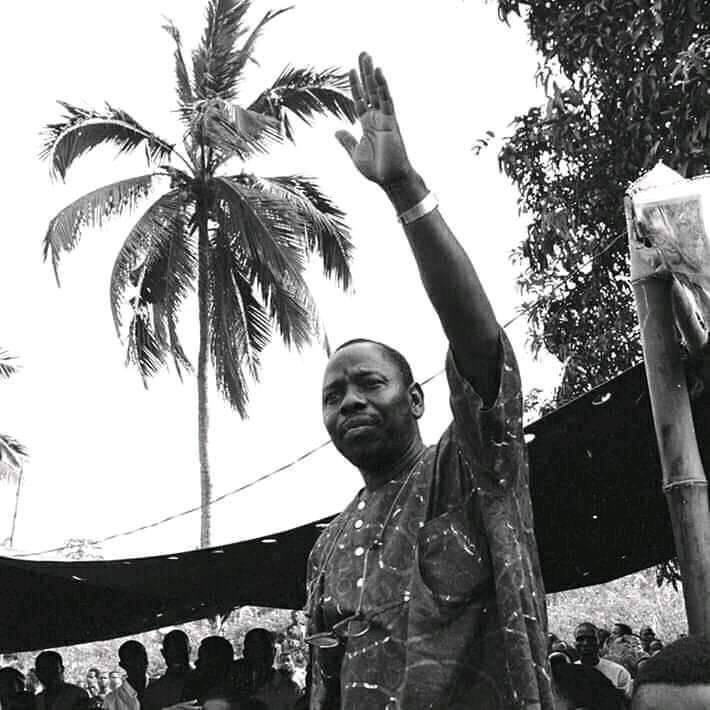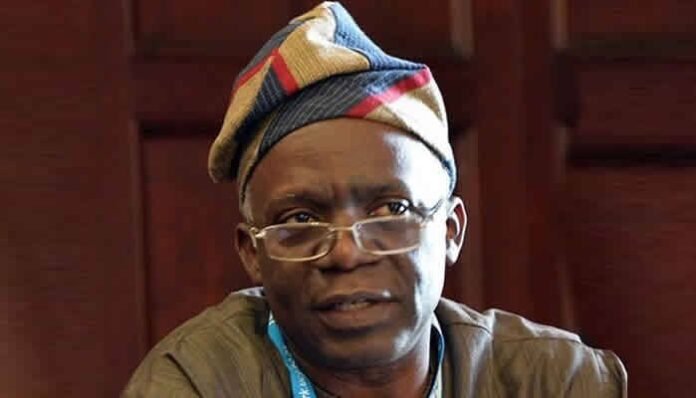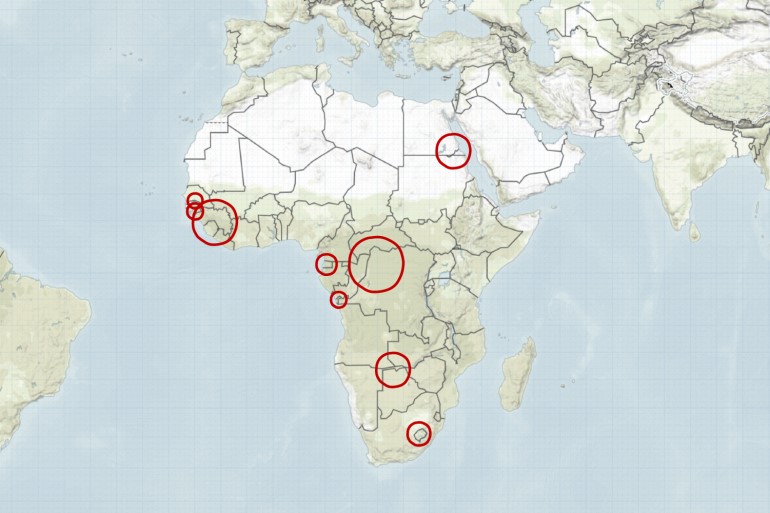Human rights lawyer and activist, Femi Falana, has accused late military ruler, General Sani Abacha, of orchestrating the brutal killing of the Ogoni 4 and Ogoni 9 in 1995.
Falana made the allegation while speaking at the 84th posthumous birthday lecture of environmentalist Ken Saro-Wiwa in Port Harcourt on Saturday.
He recounted the events surrounding the killings and the controversial trial that followed, describing it as “a deliberate miscarriage of justice.”
Falana, who alongside late Gani Fawehinmi (SAN) defended Ken Saro-Wiwa and other Movement for the Survival of the Ogoni People (MOSOP) leaders, said they were frustrated out of the tribunal when it became clear that the military had no interest in a fair hearing.
Shell’s Role and the Divide-and-Rule Tactics
The activist accused Shell Petroleum Development Company (SPDC) of collaborating with the Nigerian military regime to suppress the Ogoni struggle.
“In a desperate bid to exploit the oil resources without control, Shell was granted licences by the Nigerian State to import arms under the pretext of protecting its assets,” he said.
“Those weapons were later found in the hands of militant youths, used to incite violence between communities while Shell and other oil companies continued to exploit the region.”

Falana alleged that when Shell’s divide-and-rule tactics failed, the Task Force led by Col. Paul Okuntimo recruited militants who murdered the Ogoni 4.
“The soldiers who were present at the scene made no arrest,” he said. “Instead, they took away the bodies of the deceased to an unknown location.”
Prejudicial Charges and a Mock Trial
According to Falana, as soon as the killings occurred, the then military governor of Rivers State, Col. Dauda Komo, hastily declared that Saro-Wiwa and other MOSOP leaders would be held liable—long before any investigation began.
He revealed that prosecutors initially discontinued the murder charge filed in court because “the evidence was too weak to secure a conviction.” But Abacha allegedly ordered a special military tribunal to try them regardless.
“The tribunal rejected vital material evidence of the defence,” Falana said, “to pave the way for the conviction and execution of the Ogoni 9.”
Secret Execution and Nigeria’s Suspension
Speaking further, Falana noted that even the tribunal’s procedures violated military law.
“Under Section 7 of the Civil Disturbances Decree, the Tribunal was required to send the record of proceedings to the Provisional Ruling Council (PRC) for confirmation,” he explained. “But the PRC confirmed the death sentences and gave orders for the secret execution of the Ogoni 9 before the record was even compiled.”
He added that the illegal execution led to Nigeria’s suspension from the Commonwealth of Nations.
Three decades later, the haunting shadow of the Ogoni 9 still hangs over Nigeria.
But can the presidential state pardon granted to the late deceased be enough justice, or will it take the realisation of the environmental rights for Ogoniland, for which Wiwa and others fought, bled and died? Share your views.
Rate, Like 👍, Comment 💬, Share this article, Follow us on our social media handles, and Submit your own story to get featured and earn rewards!







